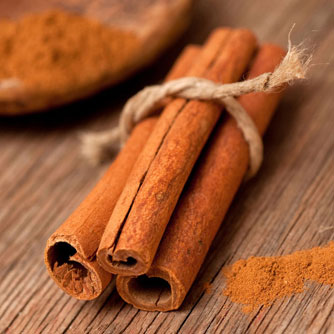Better Learning with Cinnamon

Cinnamon, a favorite spice of millions of people worldwide, contains many health benefits and is now the focus of attention for a new reason. Aside from sprinkling cinnamon on top of lattes, or adding it to baked pies and cereal, it may now be used to enhance learning. A recent study revealed that after consuming cinnamon, mice (which are said to be poor learners), improved their learning ability. According to Floyd A Davis, the Professor of Neurology at Rush, and Kalipada Pahan, Ph.D and lead researcher, cinnamon is the easiest and perhaps the safest method to convert poor learners to good learners. It is still a mystery as to why some people are quick, natural learners, and others are slow, or unable to process information, or learn new skills. Pahan provides comments and hopes, to find out why some brain processes result in inadequate learning, and what strategies can be used to increase learning and improve memory.
New Discovery Could Explain Reason for Poor Learning Experience
The researchers discovered that the hippocampus, which is the part of the brain that is responsible for memory storing, organization and formation, contains proteins. For the poor learners, less CREB protein was found, which plays a significant role in learning and memory. Large amounts of the alpha5 subunit of GABAA receptor, or GABRA5 proteins, were found in the poor learners. GABAA receptors work to generate tonic inhibitory conductance associated with the brain. These substances were present more so in poor learners, than the mice that seem to learn more efficiently.
How Does Cinnamon Help Improve Learning?
The researchers noticed that after feeding the subject mice cinnamon, their learning increased. After consuming the cinnamon, the proteins associated with memory and learning were altered, thus turning the spice into a product called sodium benzoate. Sodium Benzoate is used as a treatment for brain damage. The sodium benzoate increased the CREB and decreased GABRA5, optimizing the ability of the hippocampal neurons to change. This resulted in increased learning and memory improvement.
The subject mice were trained by researchers for 48 hours, in a maze with 20 holes. The experiment was focused on watching the mice learn how to locate their target hole. According to Phan, 1 month of feeding the mice cinnamon proved to be successful in treating and reversing anatomical, biochemical and cellular changes, which occur in the brains of mice with poor learning abilities. In the conclusion of the test, the subject mice who were deemed to be poor learners had improved learning and memory, and the good learners remained unchanged. When it comes to educational performance among humans, the learning curve in individuals is different worldwide. Use of cinnamon could potentially assist those with learning disabilities. Phan states “Individual difference in learning and educational performance is a global issue. We need to further test this approach in poor learners. If these results are replicated in poor learning students, it would be a remarkable advance.”
It should be noted that not all cinnamon is the same. Some forms of cinnamon, such as Ceylon, are pure. However, Chinese cinnamon contains a substance that may contribute to liver damage.